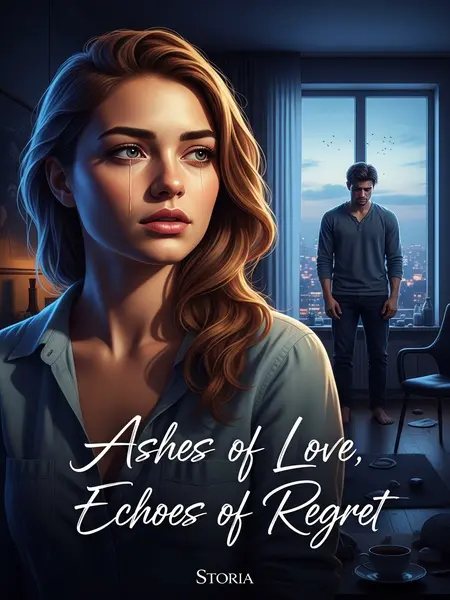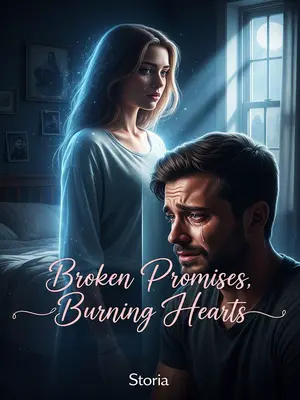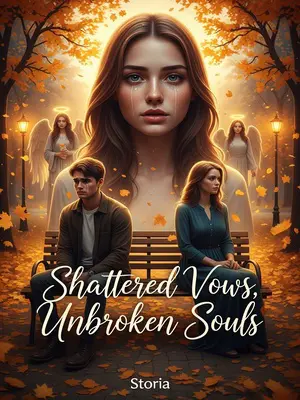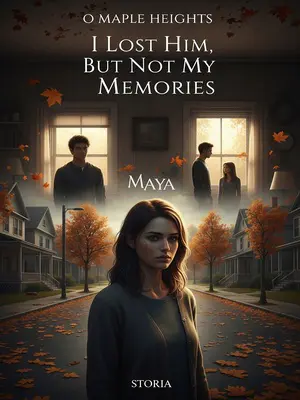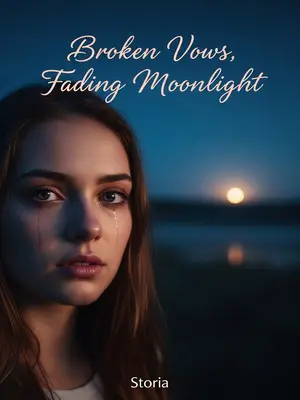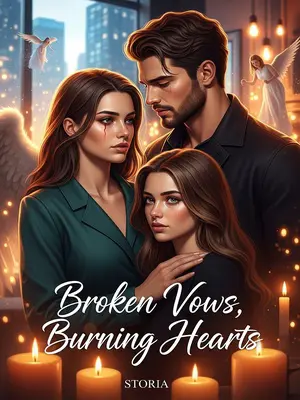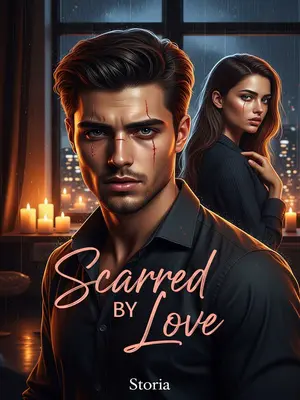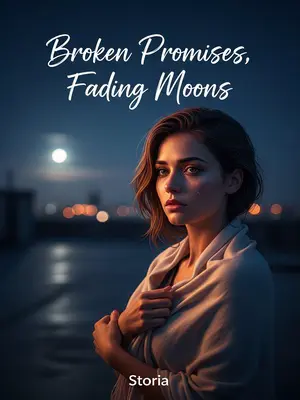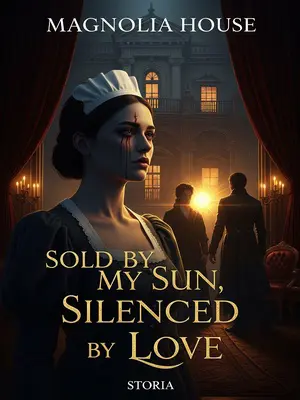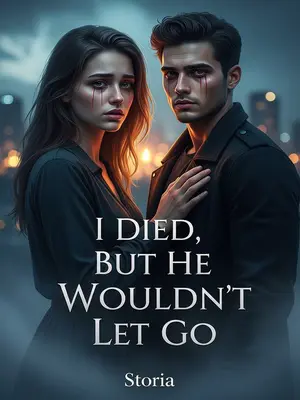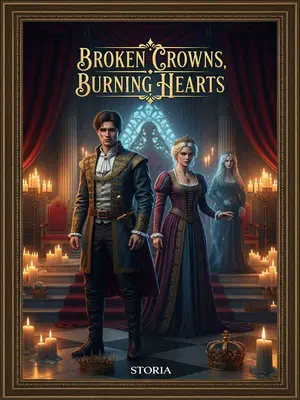Chapter 2: Chasing Shadows
But Mason grabbed his wrist, his gaze fixed on my exposed arm, where a rose tattoo—formed by the letters 'MC'—stood out starkly against the blood-stained skin.
His hand trembled as he stared at the tattoo. For a second, I thought he might actually break down. But then he drew back, stiffening, hiding behind that wall of composure.
I remember when I first got that tattoo, I excitedly showed it to Mason. He was furious, thinking tattooing his name was irresponsible.
He said it was reckless, that I’d regret it someday. I still remember his words—"Harper, that’s not smart. One day, you’ll wish you hadn’t." But deep down, I hoped he’d see it as proof of my devotion. I wanted to give him something permanent, something he could never doubt.
But at the time, his grandmother had just passed away. In his grief, he said he was alone in the world from then on.
He sat on the edge of his bed, shoulders hunched, eyes red from crying. I wanted so badly to comfort him, to make him feel less alone. That’s when I decided to get the tattoo.
So I got the tattoo.
It hurt, but I didn’t care. I wanted something that would always tie me to him, even if he never really wanted it.
I just wanted to bring him a little happiness.
I thought maybe, just maybe, it would make him smile again. That it would remind him someone was still here for him.
I pointed at it and made a solemn promise: "The rose meant I’d always be by your side. Mason, you’ll never be alone."
I remember the look in his eyes—a mix of gratitude and something else, something I couldn’t quite name. Maybe fear. Maybe guilt.
I've forgotten how he reacted, but I was moved by my own gesture for a long time. Looking back, maybe his anger was really about feeling burdened.
I see that now. Back then, I thought love meant giving everything, even if it wasn’t wanted. Maybe I was wrong.
The one he wanted by his side was never me.
It’s a bitter truth, but I can finally admit it. I was always just a stand-in for someone else.
Mason stared at my tattoo and said quietly, "No need to check. It's her."
His voice was flat, almost mechanical. Like he was reading a script he never wanted to memorize. He didn’t cry. He didn’t even flinch. Just stood there, pale and silent.
I searched his face—pale, drawn, still so handsome it hurt. I heard the police explain, "The killer was a random attacker with a knife. Your girlfriend tried to help a pregnant woman escape, but was tripped and fell. She died a hero."
The words hung in the air, heavy and final. I wondered if Mason even heard them, or if he was already somewhere else in his mind, trying to block it all out.
No. I tried to help the pregnant woman, but as the killer closed in, she pushed me down and ran off alone.
Funny how the truth gets twisted. In the end, I wasn’t a hero. Just unlucky. Just in the wrong place at the wrong time, betrayed by a stranger’s desperation.
I was stabbed over twenty times by that maniac and died from massive blood loss.
Every stab felt like a question I never got to ask. Every second stretched out, filled with regret and pain. I wish I could forget, but even as a ghost, the memory lingers.
What rotten luck.
If there’s such a thing as fate, mine had a cruel sense of humor. I always thought I’d die old, maybe with Mason by my side. Not like this.
I stood before Mason and cried, Mason, it hurts so much.
But he couldn’t hear me. My voice was lost in the space between worlds, just like all the words I never got to say.
But at least he didn't let the police lift the sheet—my body must have been too gruesome to look at.
Maybe that was his last act of kindness. Or maybe he just couldn’t face the mess he’d made.
When Mason left the morgue, he staggered, then leaned silently against the wall outside.
He looked so small, so lost. For a moment, I almost felt sorry for him. Almost.
After a long time, he called my parents, probably to tell them I'd died.
He fumbled with his phone, hands shaking, searching for numbers he probably never dialed before. The hallway was quiet except for his uneven breathing.
But he couldn't get through.
Not surprising. My parents divorced when I was young and had no feelings for me. They cut off contact, probably afraid I'd ask for money.
They’d moved on, started new families, left me to figure things out on my own. I was always the afterthought, the leftover from a broken home.
But the police were efficient. An older officer patted Mason on the shoulder and handed him a business card: "Here's the funeral home's number. Have someone pick her up soon."
His eyes were kind, but tired. He didn’t flinch.
"It's hot. In a couple days, she'll start to decompose. Can't keep her here."
The words were blunt, but practical. Death is ugly, and the world keeps moving. There’s no time for sentimentality in the morgue.
From the moment I was killed to the moment I became a handful of ashes in Mason's palm, less than twelve hours passed.
It all happened so fast. One minute I was alive, the next I was a memory, reduced to dust in a plastic urn. No time for goodbyes, no time for closure.
He signed all the forms, methodical, detached.
He went through the motions like he was closing a case at work. No tears, no breakdowns. Just a checklist: sign here, initial there, pick up the ashes, go home.
I searched his face—pale, drawn, still so handsome it hurt.
I watched his every move, desperate for a sign that he cared. Anything—a tremble in his hand, a crack in his voice. But there was nothing.
Just a little. Just one tear. Was that too much to ask?
I would have settled for the smallest sign. But he was stone, unmoved, as if I were a stranger he barely knew.
Even if I'd been a dog, after so many years, shouldn't there be some sadness?
At least dogs get mourned. At least dogs leave a hole behind. Me? I was just another thing to be dealt with.
But there was nothing.
